|
A Brief History of the Land of Mμ
The Hedge People
|
The earliest communities of Mμ are known as the Hedge People because of their skills in constructing both homes and primitive temples from plantings of yew and privet. Excavations in the central plain of the Land of Mμ by archaeologists from the Mμniversity of Mμ have revealed roundhouse type constructions with central hearths surrounded by a circle of closely planted privets. They were also responsible for Hedge Henge. No visible remains exist of this temple, but geo-imaging has revealed concentric plantings of sturdy yews within a circular ditch and mound. One theory was that they were trimmed into a maze design, with the central area only accessible to the priests. Aligned to the rising sun on the longest day, it is also believed that the priests used the Henge on a daily basis to organise the populace. When the morning sun started to appear over the top of the hedge it was time to get out of bed, whilst when the sun was totally obscured it would be time to retire. Work on it is believed to have started nearly 4,500 years ago and it remained in use for at least 1,000 years. Quite how they managed to keep the hedges neatly trimmed without metal tools is the subject of much debate. More so in the case of their topiaries. Scratched pictures on cave walls show what can only be topiary works of hoopoes, peacocks, hyaenas, bears and pigs. These may have been planted in an long avenue leading up to Hedge Henge. On the right is a modern day reconstruction of one of the topiaries which seem to represent Emμs
|
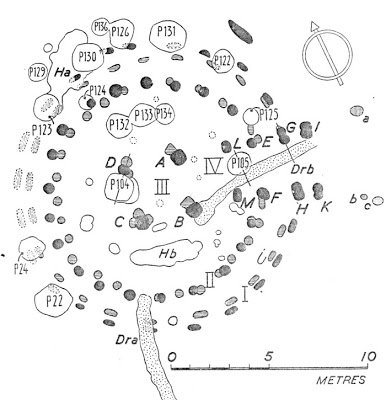
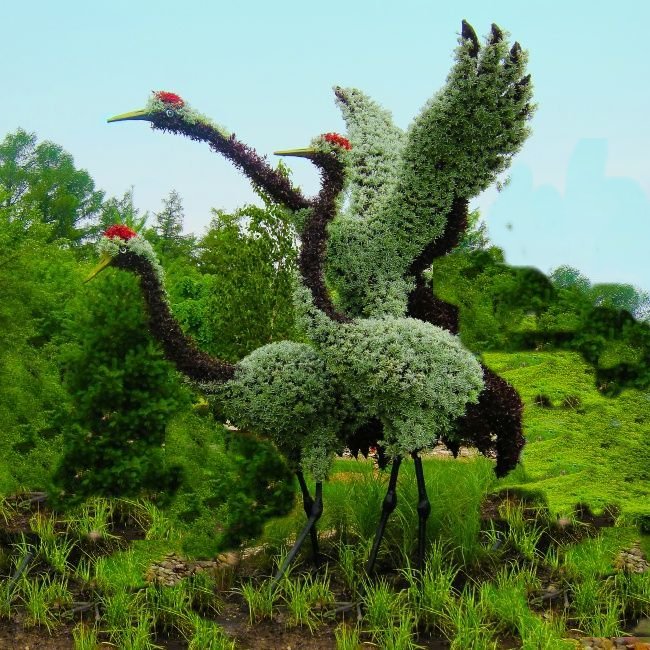
|
|

The Age of the Demi-gods. 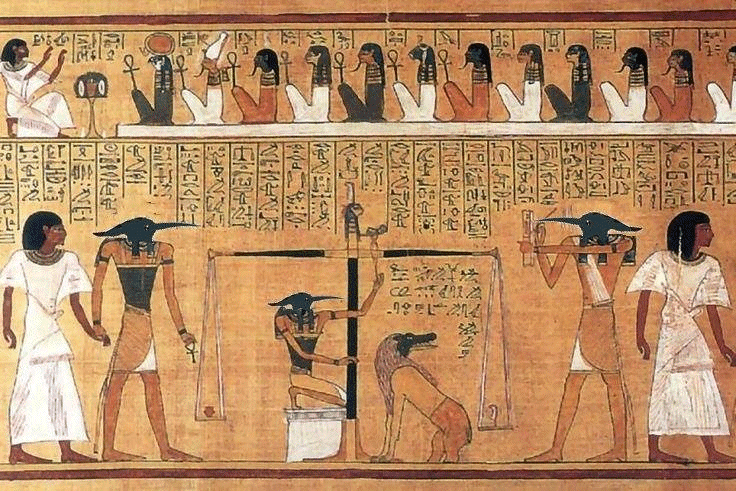
Once, where the Desert of Mμ lies, was a fertile plain inhabited from settlers from the north. With them they brought both legends of and real demigods such as Hμthμth, the ancient hoopoe god of beer, bacon, and balti curries (and probably other spicy food). They built pyramids, but unfortunately upside down, balanced on the point. Over the centuries have fallen over and have been reduced to rubble by the winds that swept across the plain blowing away the soil, destroying the crops and reducing it all to sand. In a extremely winding dried up valley, the Valley of the Kinks, tombs have been discovered, revealing both inscriptions and the mummified body of Hμthμth. We await his cloning – once a decision on whether his surrogate mother should be human or hoopoe is made.

The Braβ Age 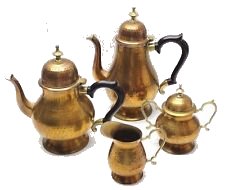
Around 3,500 years ago the native Mμians discovered how to smelt braβ. Rich seams of copper and zinc ores in the Mountains of Mμ were exploited. This kick-started a cultural revolution with tools, ornaments and jewellery being made from braβ. Digs at known habitation sites have revealed scores of objects showing that they had both domesticated horses and invited the neighbours around for share in hot herbal infusions. The residues from inside pottery bowls have been shown to be a remarkably similar composition to Brasso.
Illustrated is a fine example of a Neo-braβic ceremonial drinking set, and a dig from the middle period with pottery urns and braβ ornaments featuring animals and a witch.
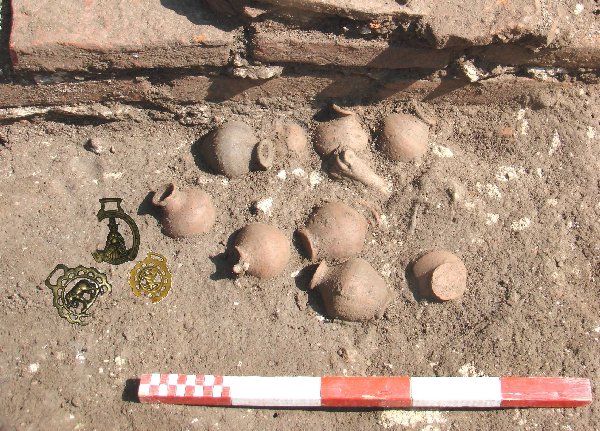

The Grμμks
This civilisation left very few physical traces. They appear to have spent their time thinking, composing epic tales, and debating rather than using tools and making things. They would ponder questions like ‘If a man said something and there no woman to hear him, would he still be wrong?’. Stories like that of the Mμnotaur now seem to have some truth behind them, so perhaps that of Julian and the Bargeonauts and his quest for the Golden Hoopoe may also b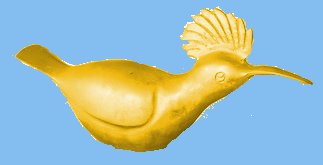 e true. The Grμμk legacy is not their artefacts, but their philosophies. Their seven deadly sins are still recognised today. The Grμμks did have single words for each of these, but they are in the Grμμk language and written in funny letters. In modern language they are over self-confidence, egotism, imposing ones values and beliefs on others, malicious lying, spouting doctrines and dogmas, self promotion, and entrepreneurship for the acquisition of wealth and power. It is down to values like these that the present day Μμians are intelligent, educated, respectful and all round good eggs. e true. The Grμμk legacy is not their artefacts, but their philosophies. Their seven deadly sins are still recognised today. The Grμμks did have single words for each of these, but they are in the Grμμk language and written in funny letters. In modern language they are over self-confidence, egotism, imposing ones values and beliefs on others, malicious lying, spouting doctrines and dogmas, self promotion, and entrepreneurship for the acquisition of wealth and power. It is down to values like these that the present day Μμians are intelligent, educated, respectful and all round good eggs.

The Rμman Empire
All the Grμμk ideals were put on hold for a couple of millennia however. First off Mμ found itself enveloped during the rise of the Rμman Empire around 2,000 years ago. Rμme itself was said to be founded by a brothers, Rμmulus and Rμmus, who were raised by hoopoes. The empire grew quickly as neighbouring towns and states saw the benefits of not getting killed defending their rights. Though they had a large conscript and slave army the Rμmans were actually more bureaucratic and decadent than warlike. The kept local chieftains too busy filling in pink sli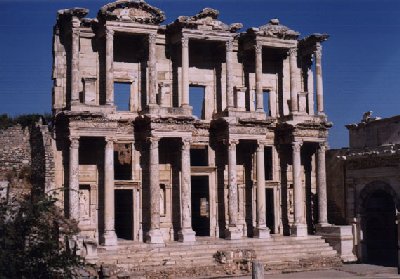 ps in triplicate to mount any uprising. It was their overblown celebrations and wild parties that did for the Rμmans. Each new emperor wanted a bigger flock of hoopoes set free at his inauguration than any of his predecessors – it became impossible not leave without dollops of hoopoe poo on you. The privileged classes bankrupted themselves throwing more extravagant and wilder parties than their friends. These, however, are still remembered today in the festival of Rμmpty Tμmpty Dμ. The Rμmans rarely finished any of their big civic building projects but they ruled for some 400 years. Today in Rμme you can see the half complete structures like that shown. This was going to house the tax collectors. ps in triplicate to mount any uprising. It was their overblown celebrations and wild parties that did for the Rμmans. Each new emperor wanted a bigger flock of hoopoes set free at his inauguration than any of his predecessors – it became impossible not leave without dollops of hoopoe poo on you. The privileged classes bankrupted themselves throwing more extravagant and wilder parties than their friends. These, however, are still remembered today in the festival of Rμmpty Tμmpty Dμ. The Rμmans rarely finished any of their big civic building projects but they ruled for some 400 years. Today in Rμme you can see the half complete structures like that shown. This was going to house the tax collectors.

The Dull Ages
Nothing much seems to have happened straight after the Rμmans. One tale from this era survives. A king seduces another king’s wife pretending to be her husband. The resulting child is whisked away and only told he is king as a young man. He sends his knights on a noble but perilous and impossible task, loses his queen to his best mate, and is seduced by his own half-sister. The king is killed by the fruit of this union at a battle to end all battles. So we know what they fantasised about if nothing else.

Mμddy Evil Times
Another miserable couple of centuries. It rained a lot everywhere was permanently muddy. Leadership succession was decided by death followed by brawn rather than brains. The winner was often the one with the biggest codpiece, hence the family rivalries became known as the Wars of the Hoses. Even the suits of armour were not immune to such decoration.
Behind each king though was a plotter. They clever one who wouldn’t and couldn’t lead troops into battle, but knew exactly who to support and how to get up the noses of the enemy. Constant plotting and spreading rumours was the norm for them, especially to get their kids decent positions at court.

The Mμng Dynasty
Meanwhile in the north of Mμ a small but powerful family came to power. They were successors to the legendary Ling Chμn about which little is known (for now). To keep out invaders they built the Great Fence around their territory. They kept themselves to themselves and liked making pottery. Today Mμng vases and figurinesare treasured artefacts. The Mμseum in Mμ has a permanent exhibition (except when the main gallery is hired out for a party) devoted to them.
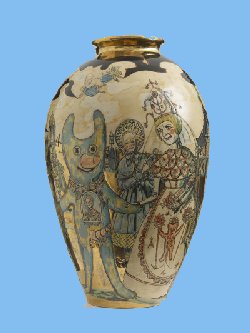 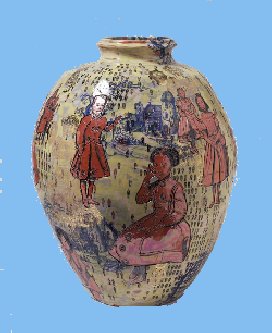 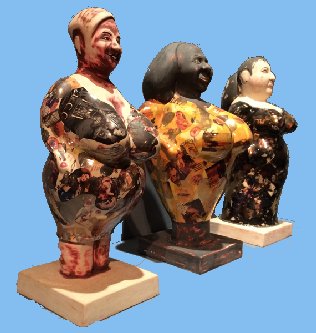

The Tμber Era
The wars came to an end when a forgotten cousin, living in hiding in Straddle, of one of the fractious families raised an army and defeated Big Dick. In fact his prominence was only made possible by his mum, who married and remarried, amassed a small fortune, 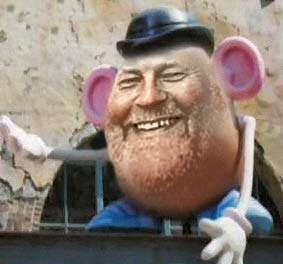 swapped allegiance several times, all to get her son the top job. Hμbert Tμber didn’t actually do much, but this suited the Mμians who had had enough of battles and wars. He was seen as a great compromise by all sides. The peace that ensued allowed a blossoming of arts and science across Mμ. His son, also called Hμbert, was happy enough marrying and divorcing his former wives’ ladies in waiting (they didn’t have to wait long). Mμ became a great trading nation, didn’t bang the gong saying how great they were, and was left alone when the rest of the world had their petty squabbles over the centuries. The Tμbers became the subject of ridicule and parody, so Mμ just forgot about having leaders, rulers and kings, and life for all got better. swapped allegiance several times, all to get her son the top job. Hμbert Tμber didn’t actually do much, but this suited the Mμians who had had enough of battles and wars. He was seen as a great compromise by all sides. The peace that ensued allowed a blossoming of arts and science across Mμ. His son, also called Hμbert, was happy enough marrying and divorcing his former wives’ ladies in waiting (they didn’t have to wait long). Mμ became a great trading nation, didn’t bang the gong saying how great they were, and was left alone when the rest of the world had their petty squabbles over the centuries. The Tμbers became the subject of ridicule and parody, so Mμ just forgot about having leaders, rulers and kings, and life for all got better.

The Meteorological Revolution.
While elsewhere had grimy, oily industrial revolutions or muddy agrarian revolutions, the Land of Mμ had a meteorological one. The good folk of Mμ were well aware that in the past the climate varied considerably with long wet periods lasting decades, through a period where the rivers froze over each winter and people got snowed in, and others where the land was bathed in sunshine, but the crops suffered, And there were day to day, or week to week, fluctuations in the weather. A bit of variation is great they decided, but a nice climate where you don’t have to wear several layers of clothing in winter, and summer is pleasantly warm would be ideal. So the old weather predictors eschewed their old methods (which included card readings and goat entrails) and teamed up with the scientists and came up with an ideal climate. The scientists made it happen: we don’t know how and we probably wouldn’t be able to understand. As long as it worked that’s all we wanted.
This allowed Mμ to both progress and work independently from the rest of the world. Everyone was happier and great things happened. Mμ was the destination for a select few from the outside. And Mμ was happy to receive those who put in as much as they took out during their visits. Those artists and writers who seem to have disappeared for a few months before painting or writing their best works were probably in Mμ.

Recent Times.
The Land of Mμ still keeps its head down avoiding international politics. It is happy not to be a popular holiday destination preferring to be selective. Mμ has resisted the temptation to become a tax haven on moral grounds. It is content to be the ultimate ‘stress free zone’, where everybody does what they like, because everybody knows not do anything to cause any problems with anybody else. So no government, military, police or civil service are needed. Money is rarely seen as people grow or make what they need, or barter their products and skills. You can even get a bacon sandwich after midday!
Straddle was always the ‘odd’ place in Mμ, doing things differently and preferring to be behind the times. The lack of drinking time laws upset the landlord of the Sow & Fiddle, who wanted to be able to say when he was going to close. This precipitated Straddle’s cessation from the Land of Mμ and becoming the rePUBlic of Straddle. This meant Straddle would also have snow and winter, but they seem no to mind. And it means the more perverse Mμians don’t have to travel far to do a bit of sledging or have a snowball fight.

|
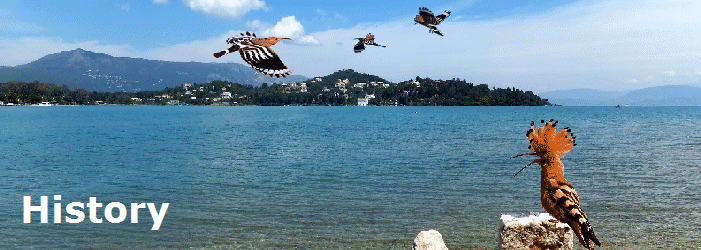
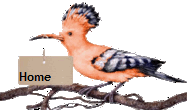

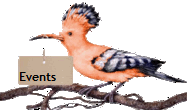
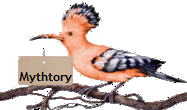
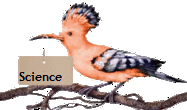
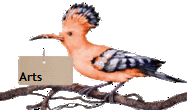
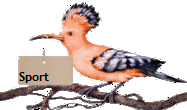
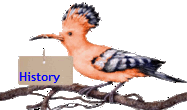
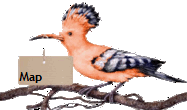
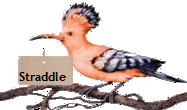





 e true. The Grμμk legacy is not their artefacts, but their philosophies. Their seven deadly sins are still recognised today. The Grμμks did have single words for each of these, but they are in the Grμμk language and written in funny letters. In modern language they are over self-confidence, egotism, imposing ones values and beliefs on others, malicious lying, spouting doctrines and dogmas, self promotion, and entrepreneurship for the acquisition of wealth and power. It is down to values like these that the present day Μμians are intelligent, educated, respectful and all round good eggs.
e true. The Grμμk legacy is not their artefacts, but their philosophies. Their seven deadly sins are still recognised today. The Grμμks did have single words for each of these, but they are in the Grμμk language and written in funny letters. In modern language they are over self-confidence, egotism, imposing ones values and beliefs on others, malicious lying, spouting doctrines and dogmas, self promotion, and entrepreneurship for the acquisition of wealth and power. It is down to values like these that the present day Μμians are intelligent, educated, respectful and all round good eggs.  ps in triplicate to mount any uprising. It was their overblown celebrations and wild parties that did for the Rμmans. Each new emperor wanted a bigger flock of hoopoes set free at his inauguration than any of his predecessors – it became impossible not leave without dollops of hoopoe poo on you. The privileged classes bankrupted themselves throwing more extravagant and wilder parties than their friends. These, however, are still remembered today in the festival of Rμmpty Tμmpty Dμ. The Rμmans rarely finished any of their big civic building projects but they ruled for some 400 years. Today in Rμme you can see the half complete structures like that shown. This was going to house the tax collectors.
ps in triplicate to mount any uprising. It was their overblown celebrations and wild parties that did for the Rμmans. Each new emperor wanted a bigger flock of hoopoes set free at his inauguration than any of his predecessors – it became impossible not leave without dollops of hoopoe poo on you. The privileged classes bankrupted themselves throwing more extravagant and wilder parties than their friends. These, however, are still remembered today in the festival of Rμmpty Tμmpty Dμ. The Rμmans rarely finished any of their big civic building projects but they ruled for some 400 years. Today in Rμme you can see the half complete structures like that shown. This was going to house the tax collectors.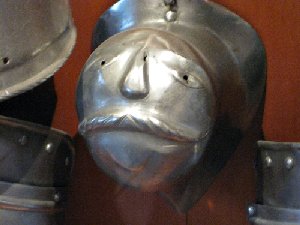



 swapped allegiance several times, all to get her son the top job. Hμbert Tμber didn’t actually do much, but this suited the Mμians who had had enough of battles and wars. He was seen as a great compromise by all sides. The peace that ensued allowed a blossoming of arts and science across Mμ. His son, also called Hμbert, was happy enough marrying and divorcing his former wives’ ladies in waiting (they didn’t have to wait long). Mμ became a great trading nation, didn’t bang the gong saying how great they were, and was left alone when the rest of the world had their petty squabbles over the centuries. The Tμbers became the subject of ridicule and parody, so Mμ just forgot about having leaders, rulers and kings, and life for all got better.
swapped allegiance several times, all to get her son the top job. Hμbert Tμber didn’t actually do much, but this suited the Mμians who had had enough of battles and wars. He was seen as a great compromise by all sides. The peace that ensued allowed a blossoming of arts and science across Mμ. His son, also called Hμbert, was happy enough marrying and divorcing his former wives’ ladies in waiting (they didn’t have to wait long). Mμ became a great trading nation, didn’t bang the gong saying how great they were, and was left alone when the rest of the world had their petty squabbles over the centuries. The Tμbers became the subject of ridicule and parody, so Mμ just forgot about having leaders, rulers and kings, and life for all got better.